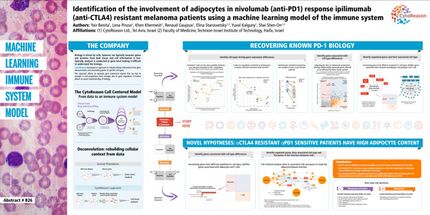New treatment for advanced melanoma
Opdivo offers treatment option for patients with poor prognosis
The European Medicines Agency (EMA) has recommended granting a marketing authorisation for Opdivo (nivolumab). Opdivo is recommended to be used on its own (monotherapy) for the treatment of adult patients with advanced (unresectable or metastatic) melanoma.
For decades, chemotherapy was the standard treatment for patients with advanced melanoma, but it did not improve survival. In the last three years, the authorisation of targeted treatments, including monoclonal antibodies, BRAF V600 and MEK inhibitors, have significantly changed the therapeutic landscape.
The active substance in Opdivo (nivolumab) is a monoclonal antibody. Nivolumab attaches to and blocks a receptor called ‘programmed death-1’ (PD-1). By blocking the usual receptor interactions, Opdivo leads to activation of the immune system to kill melanoma cells. Opdivo is the first cancer treatment selectively targeting PD-1 recommended for approval in the European Union (EU).
Opdivo’s recommendation is based on two main studies in patients with advanced malignant melanoma. The first study randomly assigned 418 patients who had not received previous treatment for their melanoma, to receive either Opdivo or standard chemotherapy (dacarbazine). After 12 months, the survival rate of patients treated with Opdivo was much higher than the rate of patients who received dacarbazine (73% compared with 42%). The second study randomised 405 patients who had received previous treatment for their melanoma to receive Opdivo or chemotherapy (either dacarbazine or carboplatin and paclitaxel) and found that a greater proportion of patients responded to Opdivo compared with chemotherapy (31.7% compared with 10.6%). A follow-up plan to monitor the safety and efficacy of Opdivo was agreed by the Committee for Medicinal Products for Human Use (CHMP).
Other news from the department research and development
Most read news
More news from our other portals
See the theme worlds for related content
Topic world Antibodies
Antibodies are specialized molecules of our immune system that can specifically recognize and neutralize pathogens or foreign substances. Antibody research in biotech and pharma has recognized this natural defense potential and is working intensively to make it therapeutically useful. From monoclonal antibodies used against cancer or autoimmune diseases to antibody-drug conjugates that specifically transport drugs to disease cells - the possibilities are enormous

Topic world Antibodies
Antibodies are specialized molecules of our immune system that can specifically recognize and neutralize pathogens or foreign substances. Antibody research in biotech and pharma has recognized this natural defense potential and is working intensively to make it therapeutically useful. From monoclonal antibodies used against cancer or autoimmune diseases to antibody-drug conjugates that specifically transport drugs to disease cells - the possibilities are enormous
























































